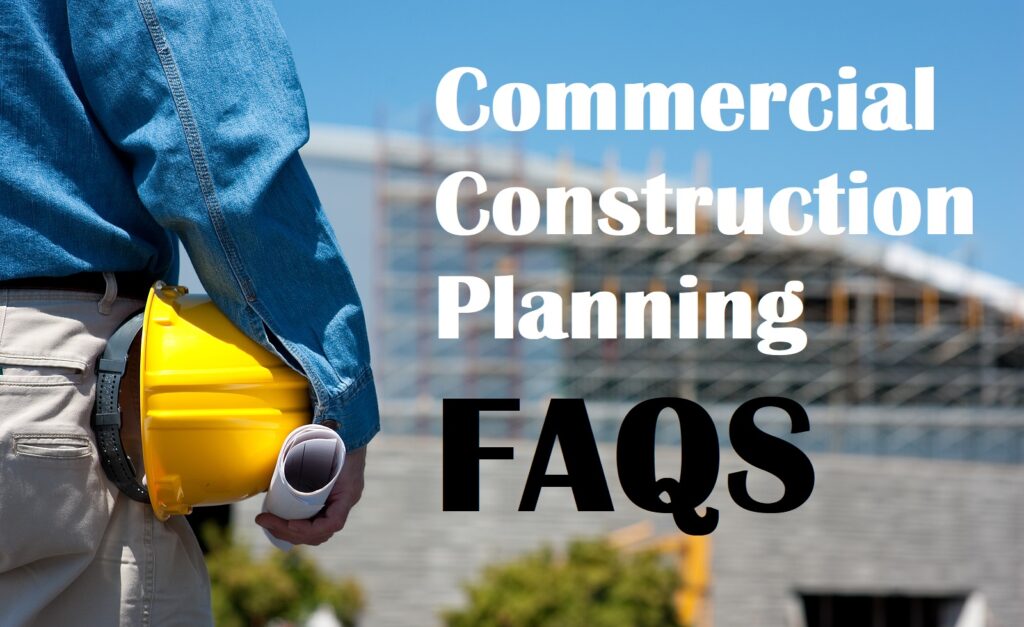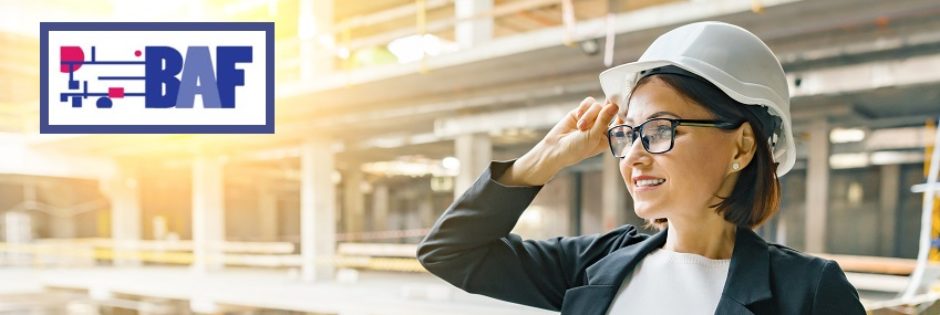Planning a commercial construction project requires astute focus, commitment, and expertise. But when it comes to your role as a business owner, all you have to do is find a reputable commercial contracting company to work with. They can navigate all elements and aspects of your commercial build, ensuring that every specification is met with the highest level of craftsmanship and accuracy, while also keeping your business’s overall culture and vision alive.
But before you find an Indiana commercial construction company that can deliver all of these building objectives, you’ll surely be asking yourself, “where do I begin?” If this sounds like your inner dialogue, you are in the right spot.
Continue reading to review some frequently asked questions about planning a commercial construction project, including how to get your plans in motion before the year end.

Frequently Asked Questions – Commercial Construction Planning
How Do Set My Construction Plan in Motion?
How you begin your construction plan will depend on where you are in the commercial construction process. Do you already have a space procured? Are you renovating an existing space that you currently lease or own? Are you looking to lease a new location? Are you interested in renovating a dilapidated building or distressed commercial asset? Have you thought about converting vacant mall space?
How and where you begin planning your construction also depends on the type of industry you are in, the extent of construction required for the project, and several other important industry variables. For this reason, it is important to consult with an experienced Indiana commercial construction company for professional advice and guidance on setting your commercial construction plan in motion.
You also want to develop an accurate budget for your commercial construction project. Once you have a budget in mind, it’ll help you allocate necessary funds and expenses for the planning, building, and post-occupancy facility maintenance phases. This is another way to help navigate the starting point of your commercial construction plan.
Can I Keep My Business Open While I Renovate?
Contrary to what your anxiety may be telling you, it is very possible to keep your business doors open during a commercial renovation or remodel. There are certain steps you can take to ensure a streamlined and hassle-free construction process for both clients and staff. Taking these steps can also protect guests and employees from any potential accidents or injuries when keeping your business open during a remodel.
Begin by developing a phasing plan before any construction is scheduled. Develop literature that clearly informs both staff and customers of the upcoming construction, including an explanation of how the business will still operate while the construction is underway.
You also need to work with your Indianapolis Indiana commercial construction contractor to schedule in transition days for both work and business, while also developing a strategy that allows the doors to remain open while construction is taking place. Most often, your contractors will work in sections so that the entire space is not cut off from construction at once.
How Do I Know Which Commercial General Contractor to Choose?
Not all general contractors are alike, especially when it comes to commercial construction. There are specific qualities to look for in a commercial construction company. Not only should they be extensively experienced in the commercial construction and building industry, but they should also have a large number of positive client reviews and testimonials.
A reputable Indiana commercial general contracting company should also be able to show you portfolios of their previous jobs and provide clear and accurate bids. Trust word-of-mouth and online testimonials to narrow down your list of commercial construction contractors. Then interview each one to gauge their level of professionalism and determine if they are good fit for your particular type of builder remodel.
Are you ready to skip the hassle of finding the right commercial contractor and go straight to the most trusted source in central Indiana? Contact BAF Corporation at 317-253-0531 for superior commercial general contracting services in Indianapolis, Indiana. We serve commercial and industrial clients all throughout the state.
You Should Also Read:
What is the Difference Between Commercial Contractor Estimates and Bids?
Why You Should Start Planning Your Commercial Remodel Right Now
The Importance of a Commercial Construction Schedule

